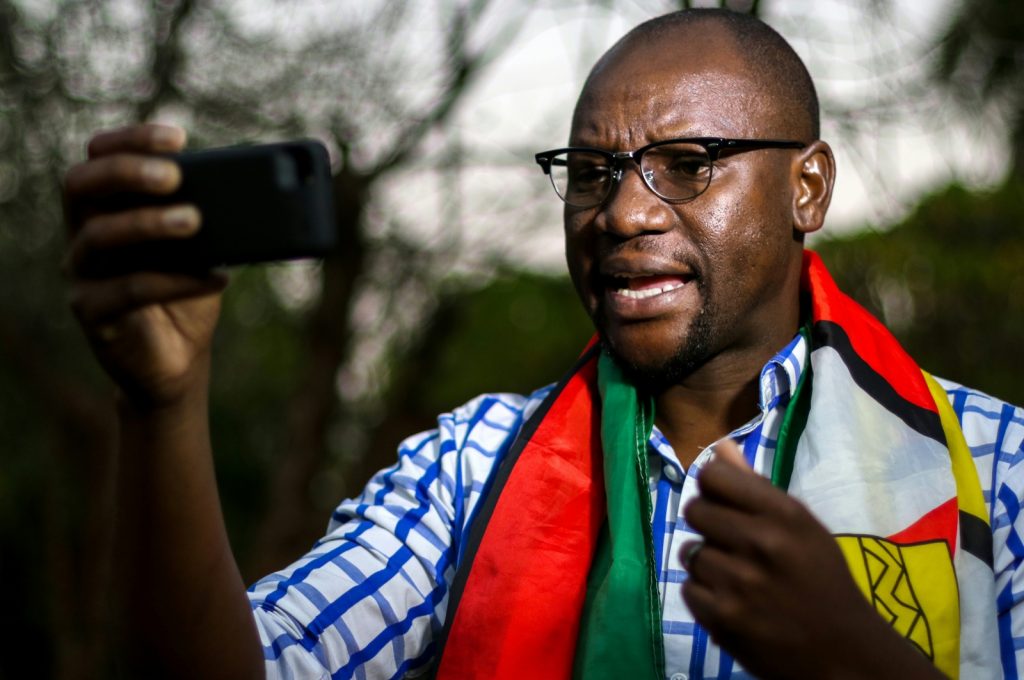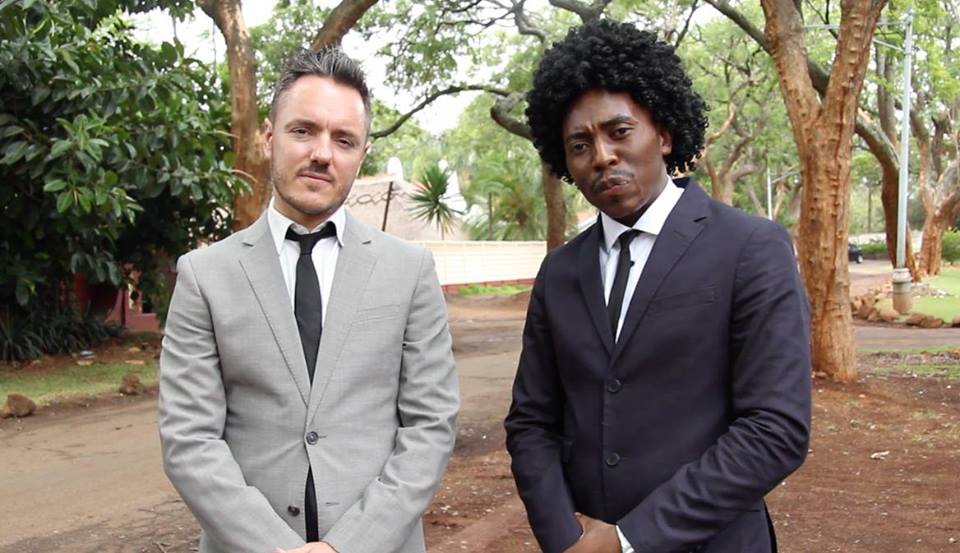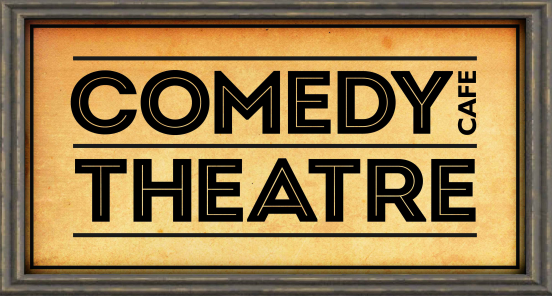Index relies entirely on the support of donors and readers to do its work.
Help us keep amplifying censored voices today.
[vc_row][vc_column][/vc_column][/vc_row][vc_row][vc_column][vc_column_text]
Evan Mawarire, a Zimbabwean Baptist pastor who criticised his country’s government, has been arrested.
On 1 February 2016 Mawarire, a nominee for the 2017 Index on Censorship Freedom of Expression Awards, who left Zimbabwe last year in fear for his life, was arrested at Harare International Airport on his return to the country from New York for “subverting the constitutionally elected government”.
“Index calls for the immediate and unconditional release of human rights activist and society leader Pastor Evan Mawarire in Zimbabwe. This arrest is a clear retaliation for Mawarire’s role in #ThisFlag movement and it shows the extent of the regime’s will to silence and deter peaceful dissent,” Melody Patry, Head of Advocacy, Index on Censorship said.
In May 2016 Mawarire sparked a protest movement in Zimbabwe when he posted a video of himself draped in the Zimbabwean flag, expressing his frustration at the endemic corruption in the nation. A subsequent series of YouTube videos and the hashtag Mawarire used, #ThisFlag, went viral, sparking protests and a boycott called by Mawarire, which he estimates was attended by over 8 million people.
Index spoke with Mawarire before his return to Zimbabwe. He recorded a message to be posted in the result of his arrest.
Update: On 8 February, Mawarire was granted bail. The high Court ruled that he must surrender his passport, report twice a week to the police and pay a $300 bond. He is next due in court on 17 February.
[/vc_column_text][vc_basic_grid post_type=”post” max_items=”2″ element_width=”6″ grid_id=”vc_gid:1510744799187-7ceeb88a-dfa7-8″ taxonomies=”173″][/vc_column][/vc_row]

One of the great difficulties with satire is that often those who actually get it are those who are already on board with the message. This has been the case for Zambezi News, Zimbabwe’s leading satirical show.
Co-founder Samm Farai Monro, aka Comrade Fatso, says: “An old member of parliament may not understand our show or some of the content will go over their head, but this isn’t our target audience; our aim is reaching young Zimbabweans.”
Zambezi News parodies the Zimbabwe Broadcasting Corporation, “the state-controlled propaganda mouthpiece”, for its uncritical approach to Robert Mugabe’s government. Unsurprisingly, you won’t find the show on Zimbabwean television, and the cast is frequently harassed by state officials.
The show shot its first season in 2011 and self-promoted through independent radio and activists groups. “When we first started the show, we printed thousands of DVDs and distributed them ourselves across the country,” he says. “But now with the advent of social media and people’s access to the internet through mobile phones, we can distribute through Facebook and WhatsApp to get the message out there.”
The snubs by the state clearly haven’t hurt Zambezi News. The show has been viewed by six million Zimbabweans, and the cast have performed in Sweden, South Africa, Swaziland, the USA and with Index on Censorship in London.
Still, given the treatment of critics and dissidents in Zimbabwe, there is no doubt that Monro and his comedy troupe are risking their freedom and even their lives to make some of the hardest hitting satire in Africa. In 2010, artist Owen Maseko exhibited paintings critical of Mugabe, depicting government-led massacres in the country in the 1980s. As it’s against the law to insult the president’s authority, Maseko was arrested, interrogated and faced a possible 20-year prison sentence.
Other critics, such as activist Itai Dzamara, who had told the country’s 92-year-old dictator that he was too old to run the country and was causing Zimbabwe’s economic woes, have been disappeared. Dzamara was abducted in March 2015 never heard from again.
For Zambezi News co-founder Tongai Makawa, aka Outspoken, the danger satirists specifically find themselves in around the world “is a testament to the power of the medium”.
“Satire affords ordinary people an opportunity to connect with a message or conversation in lighter terms outside of the regular intellectual jargon that you find these politicians spouting on a daily basis,” he says. “It allows that engagement to keep flowing without people disconnecting or just feeling depressed or hopeless.”
Satire also has a knack of being able to bend its targets out of shape. “There is a group of government supporters who are really disgruntled by what we do,” says Makawa. “With satire, there has to be a degree to which people agree with you, while at the same time leaving a lot of ruffled feathers in its wake.”
Makawa and Monro have certainly ruffled many feathers, in whatever medium they are working in. Both have backgrounds in spoken word, hip hop and as activists. They run Magamba, “a cultural activist network”, which uses arts and culture in the struggle for social justice in Zimbabwe, and Shoko Festival, Zimbabwe’s “biggest festival of urban culture”.
“Shocko is about creating a space for free expression, debate and giving people a platform to talk about social and political issues, often using the vehicle of hip hop,” says Monro.
Long before his involvement with Zambezi News, Monro’s band Chabvondoka saw their debut album House of Hunger — which mixes hip hop with traditional African music such as Chimurenga to discuss political and social issues — banned from state-controlled radio and TV.
“We released the album two weeks before the presidential elections at the time, and it’s heavily critical of the government,” says Monro. “The symbolism behind the album was a book by Dambudzo Marechera, the great Zimbabwean writer, which talked about how Rhodesia was a house of hunger, but we’ve still got that situation in places.”
An estimated 1.5 million people – 16% of the population – were projected to be food insecure in 2015, a 164% on the previous year. And while the white colonial rulers of the past may be gone, the oppressors have “now been painted black and we still have the same structure of repression in places,” Monro adds.
The repression has also taken the form of an intensified campaign of artistic censorship by the government since the early 2000s, especially against defiant art.
“Hip hop, by its nature, has always been a defiant genre, something that speaks against the status quo and gives an alternative voice to a group of people who don’t have any other means of channelling their feelings,” says Makawa.
Although busy making with comedy — the pair have just toured a new show and have recently begun recording more Zambezi News— Makawa and Monro still have time for the music.
“I’ve grown to understand that we live like those superheroes who have to do admin work by day and their activism by night,” says Makawa. “I still write rhymes and think about concepts for music, so it really doesn’t ever die, it’s there gathering dust until that time when you need it.”
Monro has just completed his second album, which he has been working on for three years, due to be released later this year. He has kept his skills sharp by making hip hop “a big part of Zambezi News”.
“On the show we have these characters called the Even Mo Lil Swaggery Boys, who are like our alter-egos, a gangster rap crew, and on every season of Zambezi News we record a few hip hop tracks that take the piss out of different issues from elections to power shortages,” he says. “It’s just another way of using hip hop and satire to communicate the important political messaging and get dressed in very silly, over-bling outfits at the same time.”
Also read:
– Poetic Pilgrimage: Hip hop has the capacity to “galvanise the masses”
– Colombian rapper Shhorai: “Can you imagine a society in which women have no voice?”
– Jason Nichols: Debunking “old tropes” through hip hop
A conference followed by a day of performance to consider hip hop’s role in revolutionary social, political and economic movements across the world.
 |

|
Born in 1987, the same year Mugabe became president, Nkosilathi Emmanuel Moyo was political from a young age. “It’s more of an inborn thing. I remember when I was growing up at that stage where most kids would be interested in watching cartoons I could be seen watching news from CNN to BBC,” he said.
And Moyo watched as Mugabe, who originally fought for independence and assumed power as Zimbabwe’s anti-colonial hero, imposed an increasingly dictatorial regime. Mugabe’s ruling party, the Zimbabwe African National Union-Patriotic Front (ZANU-PF), and Zimbabwe’s security forces, went on to oversee systematic human rights violations. In the post-2000 era, during Moyo’s teenage years, Zimbabwe witnessed unprecedented political violence, leading to an economic freefall, with year-on-year inflation exceeding 1,000%.
Growing up in a small mining town, Moyo saw the young people around him manipulated by politicians to perpetuate this political violence, at the same time that they were pushed to the peripheries of political leadership and policy making. “The youth became ‘willing’ tools of abuse due to economic hardships,” he says, which included “victimising the electorate in election times.” So in 2010, at the age of 23, Moyo set up the Zimbabwe Organization For The Youth In Politics (ZOYP), along with Jasper Maposa, a community leader from his town. “We sought to enculture the youths to resist being used as agents of politically motivated violence,” he said.
ZOYP has now trained a small army of over 2,500 activists, with a new brand of peaceful politics to counter 92-year-old Mugabe’s violent regime. He has also trained 80 human rights defenders in a grassroots programme called the Community Human Rights Defenders Academy, working in remote areas of Zimbabwe.
Now author of four best-selling political books, Moyo has become an important critic of a regime notorious for disappearing, intimidating and arresting dissenting voices – criticism that has not gone unnoticed.
After publishing his book in 2015, Robert Mugabe: From Freedom Fighter to the People’s Enemy, Moyo faced increased state surveillance and death threats. He fled to the Netherlands for three months, staying with Shelter City in Utrecht, an initiative set up to protect human rights campaigners. As soon as he returned to Zimbabwe he published another book, criticising Robert Mugabe’s wife, Grace Mugabe: “Africa’s upcoming first female dictator.”
He’s been arrested in the past for his politics, after organising a youth event where former US Ambassador to Zimbabwe Charles Ray was a speaker. Charged under the Public Order and Security Act – a repressive law used to silence dissenting voices, particularly from civil society organisations and ZANU-PF opposition – he was sentenced to six months in prison, later getting off with a fine.
“My arrest did not come as a shock,” he told Index. And likewise the reaction to Mugabe’s birthday gift is not surprising, but Moyo remains defiant. “I don’t regret what I did, indeed President Mugabe must answer for crimes against humanity which he committed. Justice must prevail in Zimbabwe.”
Moyo has now set his sights worldwide, working to establish an international platform for young with political aspirations. “Looking at what is happening in Burundi, Syria, Uganda only to mention a few, I think there is a need,” he says. “Developing young people in politics is a step towards creating a peaceful world.”

The Bafta-winning duo Heydon Prowse and Jolyon Rubinstein, of BBC Three’s comedy series The Revolution Will Be Televised are joining their award-winning Zimbabwean counterparts Zambezi News for a very special one-off show at The Comedy Café Theatre, London.
Featuring Zambezi News Live – a 30 minute satirical sketch performance from Comrade Fatso, Outspoken and Michael K that hilariously tackles issues from race to sex, politics to sport and hip-hop to land reform. The story of Zambezi News, the comedians poking fun at power in Zimbabwe, was covered in the latest issue of Index on Censorship magazine.
The Zimbabweans will then be joined onstage by Heydon and Jolyon to share stories, swap jokes and explore experiences of censorship and free speech on both sides of the Sahara.
When: Thursday 27th August, 8.00pm
Where: The Comedy Cafe, 68 Rivington St, Shoreditch, London, SE2 (Map/directions)
Tickets: Sold out
Presented in partnership with The Comedy Cafe Theatre

 Index on Censorship has been publishing articles on satire by writers across the globe throughout its 43-year history. Ahead of our event, Stand Up for Satire, we published a series of archival posts from the magazine on satire and its connection with freedom of expression.
Index on Censorship has been publishing articles on satire by writers across the globe throughout its 43-year history. Ahead of our event, Stand Up for Satire, we published a series of archival posts from the magazine on satire and its connection with freedom of expression.
14 July: The power of satirical comedy in Zimbabwe by Samm Farai Monro | 17 July: How to Win Friends and Influence an Election by Rowan Atkinson | 21 July: Comfort Zones by Scott Capurro | 24 July: They shoot comedians by Jamie Garzon | 28 July: Comedy is everywhere by Milan Kundera | Student reading lists: Comedy and censorship